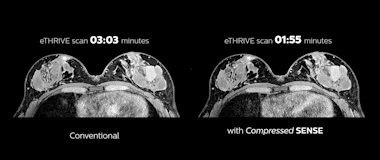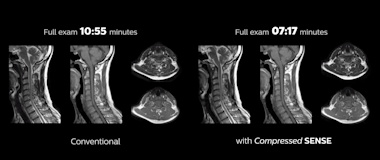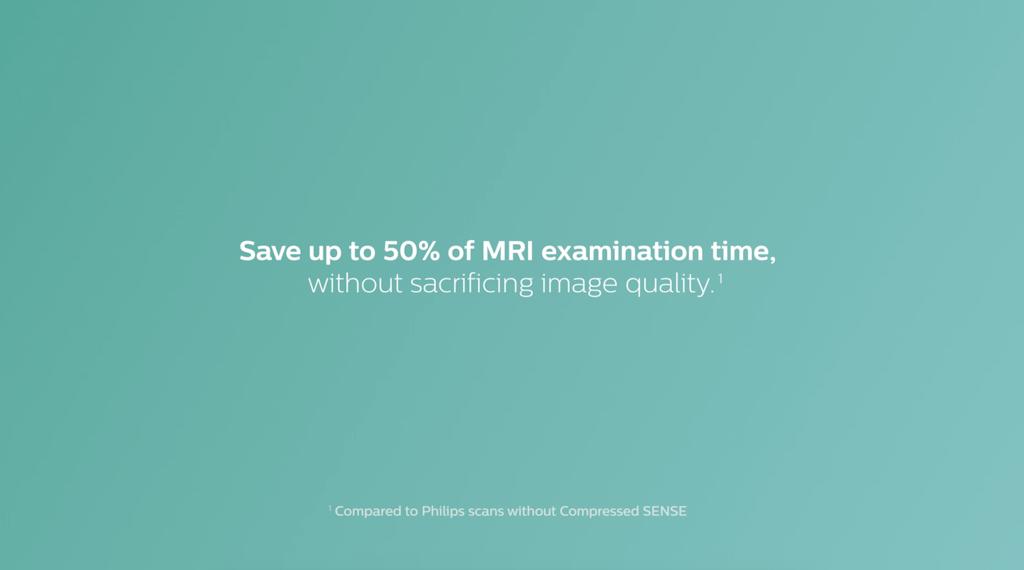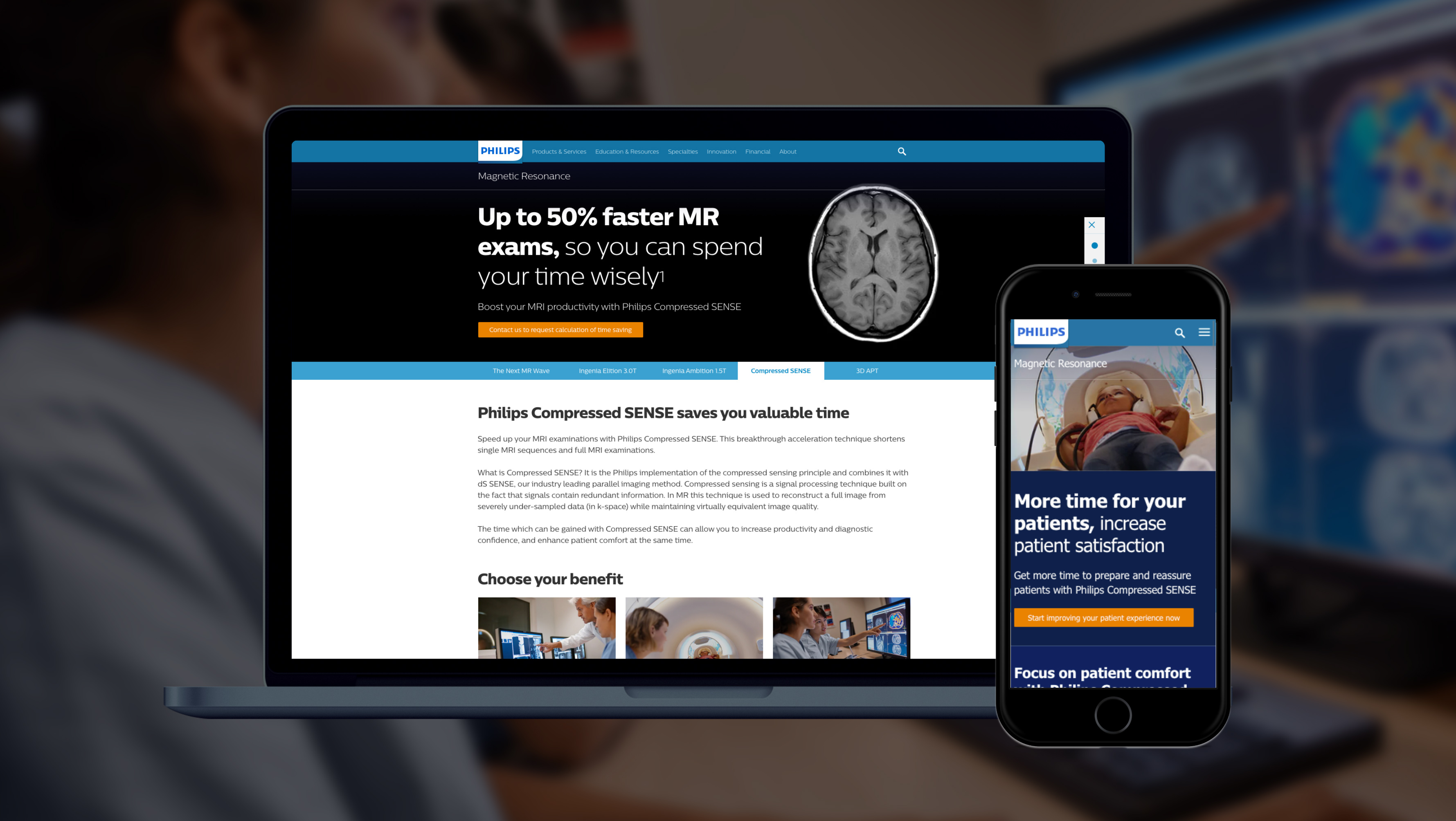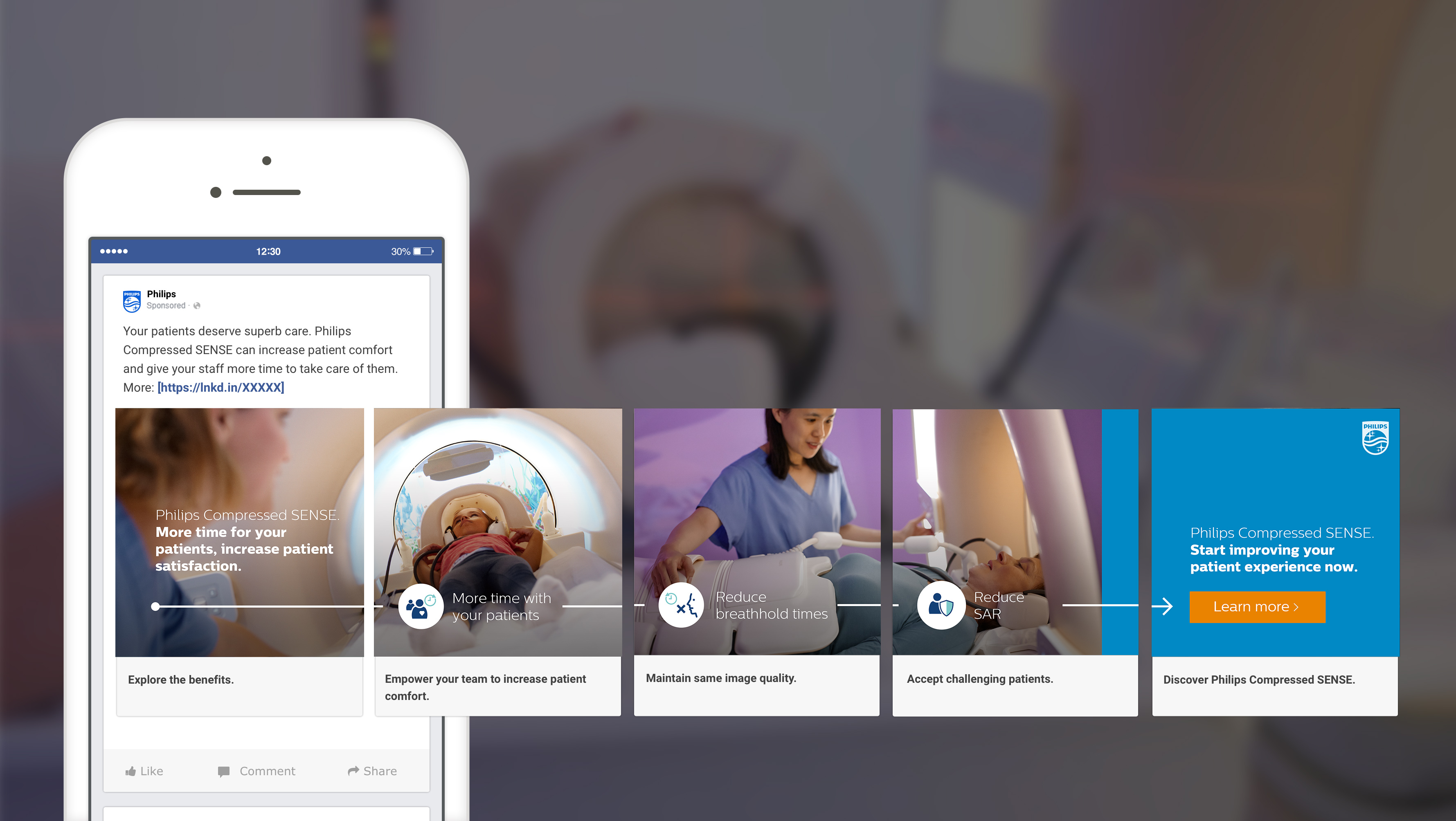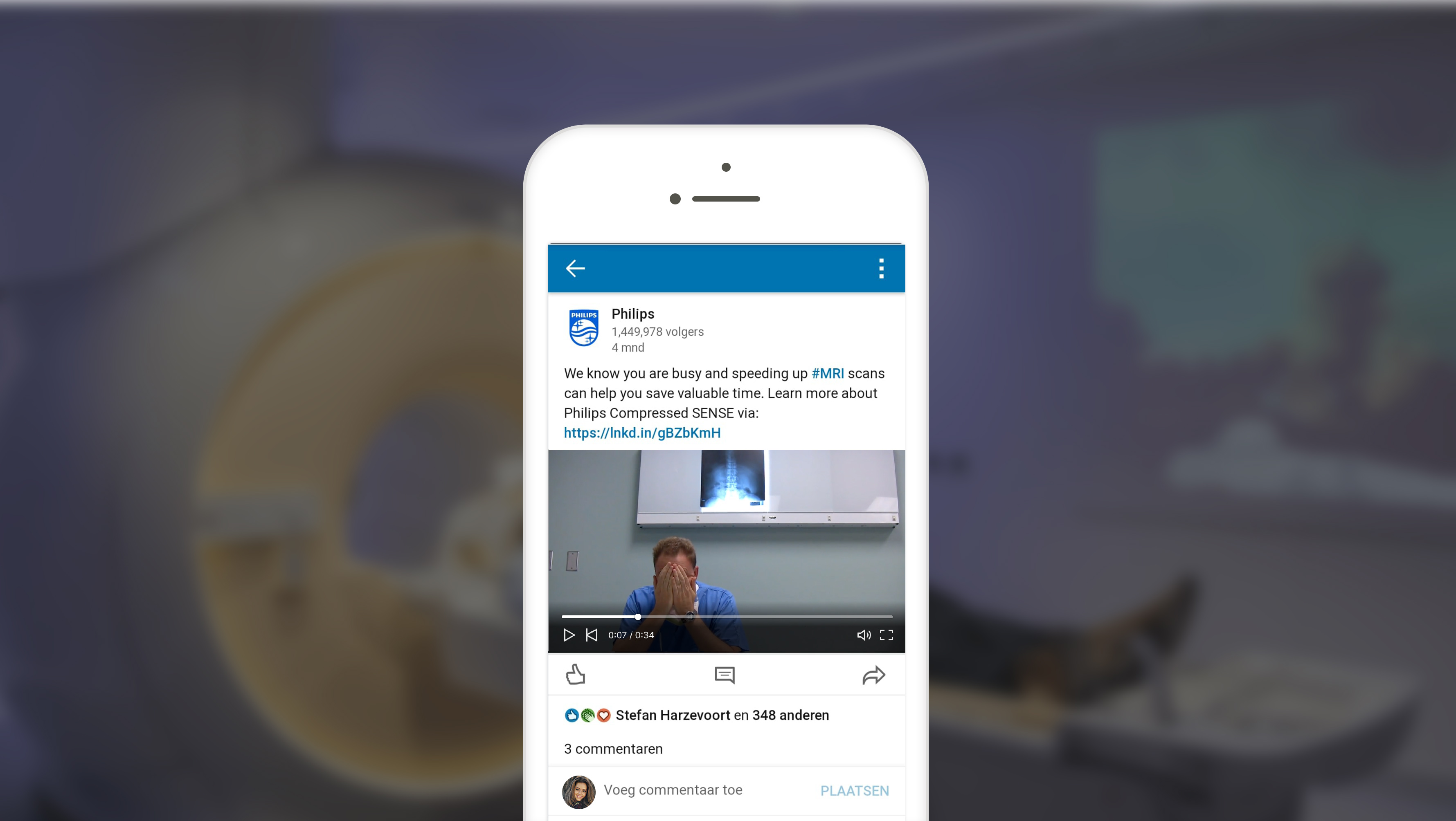Although Philips doesn’t need any introduction, that’s not the case for its Compressed SENSE healthcare product. Imagine upgrading your computer and finding it works up to 50% faster than before. How much time and frustration would that save you every day? This is exactly what compressed SENSE does, but with MRI scans. Philips’ groundbreaking acceleration technology provides laboratory technicians and radiologists with faster scans. This saves them time, time they can use to perform additional scans at the same image quality, take scans at a higher (and so sharper) “spatial” resolution, or spend with patients. And, not unimportantly, it reduces the workload on radiologists. Something else they can also use.
Philips Healthcare Compressed Sense
How do you create a successful, appealing campaign for a highly specific target group and a niche product? Our secret: by employing a healthy dose of empathy.

Get to Know Philips Compressed SENSE
About
Better Health for Patients and Doctors
Philips Compressed SENSE
The Secret Ingredient
Philips Compressed SENSE
The Campaign in Figures: Retargeting Works
Philips Compressed SENSE
